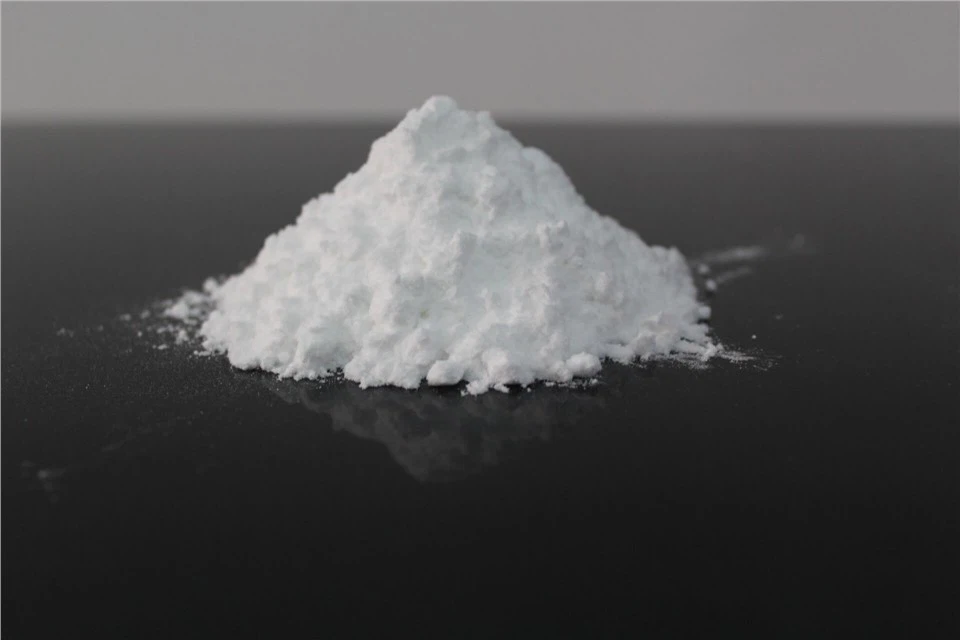Mental health is a crucial aspect of overall well-being, encompassing emotional, psychological, and social well-being. It affects how individuals think, feel, and act, and it also determines how they handle stress, relate to others, and make choices. Mental health is essential at every stage of life, from childhood and adolescence through adulthood. Understanding mental health, its various problems, symptoms, and treatments can help individuals manage their mental well-being more effectively.
What is Mental Health?
Mental health refers to an individual’s cognitive and emotional well-being. It involves managing stress, maintaining relationships, and making decisions. Good mental health enables individuals to realize their potential, cope with the normal stresses of life, work productively, and contribute to their community.
Factors influencing mental health include:
- Biological factors: Genetics, brain chemistry, and physical health.
- Life experiences: Trauma, abuse, and chronic stress.
- Family history: A history of mental health problems in the family can increase the risk.
How common are mental illnesses?
According to the US Centers for Disease Control And Prevention, Mental illnesses are among the most common health conditions in the United States.
- More than 1 in 5 US adults live with a mental illness.
- Over 1 in 5 youth (ages 13-18) either currently or at some point during their life, have had a seriously debilitating mental illness.
- About 1 in 25 U.S. adults lives with a serious mental illness, such as schizophrenia, bipolar disorder, or major depression.
Maintaining mental health involves a balance of activities that promote physical health, such as exercise and proper nutrition, as well as activities that foster emotional well-being, like social connections and mindfulness practices.
Types of Mental Health Problems
Mental health problems can manifest in various ways and can range from mild to severe. Some common types of mental health problems include:
1. Anxiety Disorders
- Description: Anxiety disorders are characterized by excessive fear or worry. They include generalized anxiety disorder (GAD), panic disorder, social anxiety disorder, and specific phobias.
- Symptoms: Persistent worry, restlessness, fatigue, difficulty concentrating, and physical symptoms like increased heart rate.
- Treatment: Therapy (cognitive-behavioural therapy or CBT), medication (antidepressants or anxiolytics), and lifestyle changes.
2. Depressive Disorders
- Description: Depressive disorders, including major depressive disorder and dysthymia, involve persistent feelings of sadness and loss of interest.
- Symptoms: Persistent sadness, loss of interest in activities, changes in appetite and sleep patterns, and thoughts of death or suicide.
- Treatment: Therapy (CBT, interpersonal therapy), medication (antidepressants), and lifestyle changes (exercise, diet).
3. Bipolar Disorder
According to Mental Health America, An estimated 2.5% of U.S. adults experience bipolar disorder at some time in their lives
- Description: Bipolar disorder involves extreme mood swings, including manic and depressive episodes.
- Symptoms: Periods of elevated mood (mania) with increased energy and activity, followed by depressive episodes.
- Treatment: Medication (mood stabilizers, antipsychotics), therapy, and lifestyle management.
4. Schizophrenia and Psychotic Disorders
- Description: These disorders involve distorted thinking and awareness, including schizophrenia and schizoaffective disorder.
- Symptoms: Hallucinations, delusions, disorganized thinking, and impaired functioning.
- Treatment: Antipsychotic medications, therapy, and social support.
5. Obsessive-Compulsive Disorder (OCD)
- Description: OCD involves unwanted, persistent thoughts (obsessions) and repetitive behaviours (compulsions).
- Symptoms: Intrusive thoughts, compulsive behaviours, and significant distress or impairment.
- Treatment: Therapy (exposure and response prevention), medication (SSRIs), and lifestyle changes.
6. Post-Traumatic Stress Disorder (PTSD)
- Description: PTSD can develop after experiencing or witnessing a traumatic event.
- Symptoms: Flashbacks, nightmares, severe anxiety, and uncontrollable thoughts about the event.–
- Treatment: Therapy (trauma-focused CBT, EMDR), medication, and support groups.
7. Eating Disorders
- Description: Eating disorders, such as anorexia nervosa, bulimia nervosa, and binge-eating disorder, involve a preoccupation with food, body weight, and shape.
- Symptoms: Extreme food restriction, binge eating, purging behaviours, and severe concern about body weight.
- Treatment: Therapy (CBT, family-based therapy), nutritional counselling, and medical monitoring.
8. Personality Disorders
- Description: Personality disorders involve enduring patterns of behavior, cognition, and inner experience that deviate from cultural expectations. Examples include borderline personality disorder and narcissistic personality disorder.
- Symptoms: Difficulties in relationships, self-image issues, and impulsive behaviors.
- Treatment: Therapy (dialectical behavior therapy for borderline personality disorder), and sometimes medication.
Symptoms of Mental Health Problems
The symptoms of mental health problems vary depending on the specific disorder but often include a combination of emotional, cognitive, and behavioral changes. Common symptoms across various mental health problems include:
1. Emotional Symptoms:
- Persistent sadness or low mood.
- Excessive fear, worry, or anxiety.
- Feelings of hopelessness or helplessness.
- Irritability or anger.
- Mood swings or emotional instability.
2. Cognitive Symptoms:
- Difficulty concentrating or making decisions.
- Memory problems.
- Intrusive or unwanted thoughts.
- Distorted thinking or beliefs.
3. Behavioral Symptoms:
- Changes in sleep patterns (insomnia or hypersomnia).
- Changes in appetite or weight.
- Withdrawal from social activities or relationships.
- Engaging in risky or self-destructive behaviors.
- Neglecting personal care or responsibilities.
4. Physical Symptoms:
- Fatigue or low energy.
- Physical aches and pains without a clear cause.
- Changes in physical appearance (weight gain or loss).
Treatments for Mental Health Problems
Effective treatment for mental health problems typically involves a combination of approaches tailored to the individual’s needs. Common treatments include:
1. Therapy:
- Cognitive-Behavioral Therapy (CBT): Focuses on identifying and changing negative thought patterns and behaviors. CBT is effective for a variety of mental health problems, including anxiety, depression, and OCD.
- Dialectical Behavior Therapy (DBT): A form of CBT specifically designed for borderline personality disorder but also used for other conditions. It emphasizes emotional regulation, mindfulness, and interpersonal skills.
- Interpersonal Therapy (IPT): Focuses on improving interpersonal relationships and social functioning. IPT is particularly effective for depression.
- Trauma-Focused Therapies: These include trauma-focused CBT and Eye Movement Desensitization and Reprocessing (EMDR) and are effective for PTSD.
- Family Therapy: Involves family members in the treatment process to improve communication and resolve conflicts.
2. Medication:
- Antidepressants: Used to treat depression, anxiety, and other mood disorders. Examples include SSRIs (e.g., fluoxetine) and SNRIs (e.g., venlafaxine).
- Anxiolytics: Medications that reduce anxiety. Benzodiazepines (e.g., diazepam) are often prescribed for short-term use.
- Antipsychotics: Used to treat psychotic disorders like schizophrenia. Examples include olanzapine and risperidone.
- Mood Stabilizers: Medications like lithium and valproate are used to treat bipolar disorder.
- Stimulants: Used to treat attention deficit hyperactivity disorder (ADHD). Examples include methylphenidate and amphetamine.
3. Lifestyle Changes:
- Regular Exercise: Physical activity has been shown to reduce symptoms of depression and anxiety and improve overall mental health.
- Healthy Diet: A balanced diet can positively impact mood and energy levels. Certain nutrients, like omega-3 fatty acids, are particularly beneficial for mental health.
- Sleep Hygiene: Establishing a regular sleep routine and creating a restful environment can improve sleep quality and reduce symptoms of mental health problems.
- Stress Management: Techniques such as mindfulness meditation, yoga, and deep breathing exercises can help manage stress and improve mental well-being.
4. Support Systems:
- Peer Support: Connecting with others who have similar experiences can provide emotional support and reduce feelings of isolation. Support groups and online communities can be valuable resources.
- Professional Support: Regular check-ins with mental health professionals, such as therapists or counsellors, can provide ongoing guidance and support.
5. Hospitalization and Intensive Treatment:
- Inpatient Treatment: For severe mental health problems that require intensive care, hospitalization may be necessary. Inpatient treatment provides a safe environment for stabilization and intensive therapy.
- Partial Hospitalization Programs (PHPs): These programs offer intensive treatment while allowing individuals to return home at night. PHPs provide a structured environment with therapy, medication management, and support.
- Intensive Outpatient Programs (IOPs): IOPs offer more intensive treatment than traditional outpatient therapy. They typically involve multiple therapy sessions per week and provide a higher level of support.
6. Alternative and Complementary Therapies:
- Mindfulness and Meditation: Practices like mindfulness meditation can reduce symptoms of anxiety and depression and improve overall mental health.
- Art and Music Therapy: These creative therapies can help individuals express emotions and improve mental well-being.
- Animal-Assisted Therapy: Interacting with animals, such as therapy dogs, can reduce stress and improve mood.
- Acupuncture: Some individuals find relief from mental health symptoms through acupuncture, a traditional Chinese medicine practice that involves inserting thin needles into specific points on the body.
Conclusion
Mental health is a fundamental component of overall well-being, influencing how individuals think, feel, and behave. It is affected by a range of factors, including biological, psychological, and social influences. Understanding the various types of mental health problems, their symptoms, and available treatments can empower individuals to take proactive steps in managing their mental health.
Treatment for mental health problems often involves a combination of therapy, medication, lifestyle changes, and support systems. By addressing mental health issues holistically and seeking professional help when needed, individuals can improve their mental well-being and lead fulfilling lives.
Promoting mental health awareness and reducing the stigma associated with mental health problems is essential for creating a supportive environment where individuals feel comfortable seeking help. As society continues to recognize the importance of mental health, it is crucial to prioritize mental well-being alongside physical health for a balanced and healthy life.










